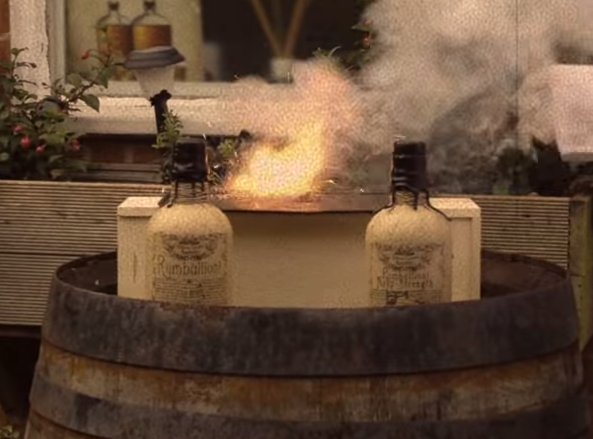Today, a whole bunch of people — maybe millions? — will drink rum.
At this point, that’s a given. It’s a commonly-requested “spirit”, popular the world over.
But before the British invaded Jamaica in 1655 (which was successful, death and disease notwithstanding) the sugary liquor was little-known, confined mostly to a few islands in the Caribbean. It wasn’t until this famous land capture that its modern fate was fully realized.
In other words, the British Navy put rum on the map.
A recent Gizmodo article detailed the compelling early history of “naval rum”, and how it left its mark both in our collective booze stash and collective booze lexicon. Here are a few of those interesting points in bite-size, bulleted form:
- During the invasion of Jamaica, the Royal Navy replaced the daily ration of French brandy with rum — it was called “tot” and was given in half-pint amounts to each sailor every day around noon.
- “Splice the mainbrace” was the Royal Navy term for divvying out the rum ration. It’s a euphemism that apparently is still used today, although no one is positive by whom (maybe now, you?).
- No one likes water-downed rum, especially old British sailors, so in order to make sure it was the real-deal strong stuff they would “prove” the liquor — test its strength by pouring it on gunpowder and igniting it. If it lit up, it was at the very least over 57% alcohol. If it didn’t, it was “underproof”. It’s actually where the term “proof” derived from when dealing with liquor. See this antiquated proofing process in the video above.
- To combat scurvy, the Brits eventually added a small amount of water and lime to the rum, and dubbed it “grog”. It was named after British admiral Edward Vernon, otherwise known as “Old Grog”.
- The grog became so popular that it was shipped throughout the world in oak barrels with brass letters that read “The Queen God Bless Her” and “The King God Bless Him”.
- It takes little more than molasses to make rum.
- After first introducing it in the 17th century, the British Navy reduced rum rations incrementally over the years. It wasn’t until 1970, however, that they were eradicated completely.




































